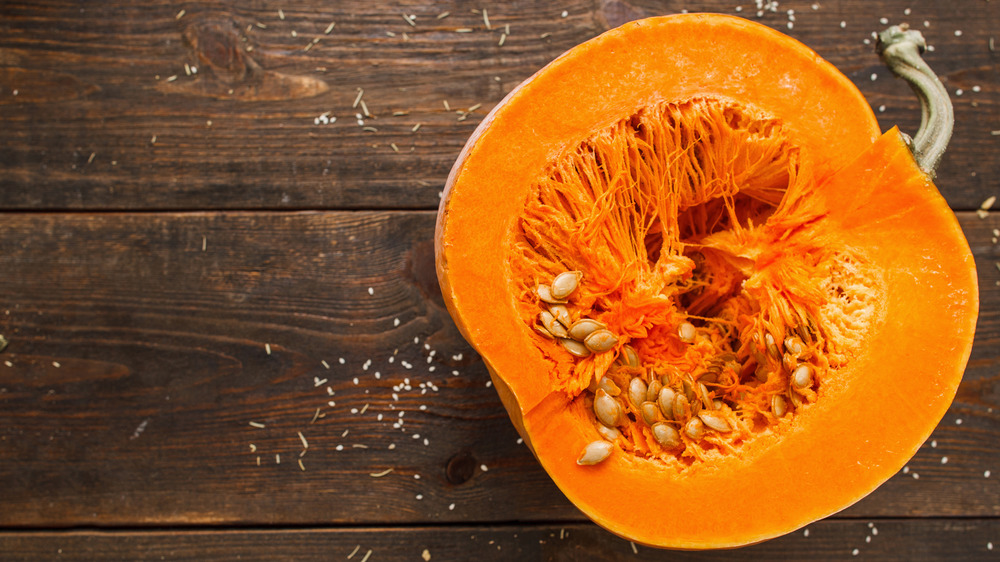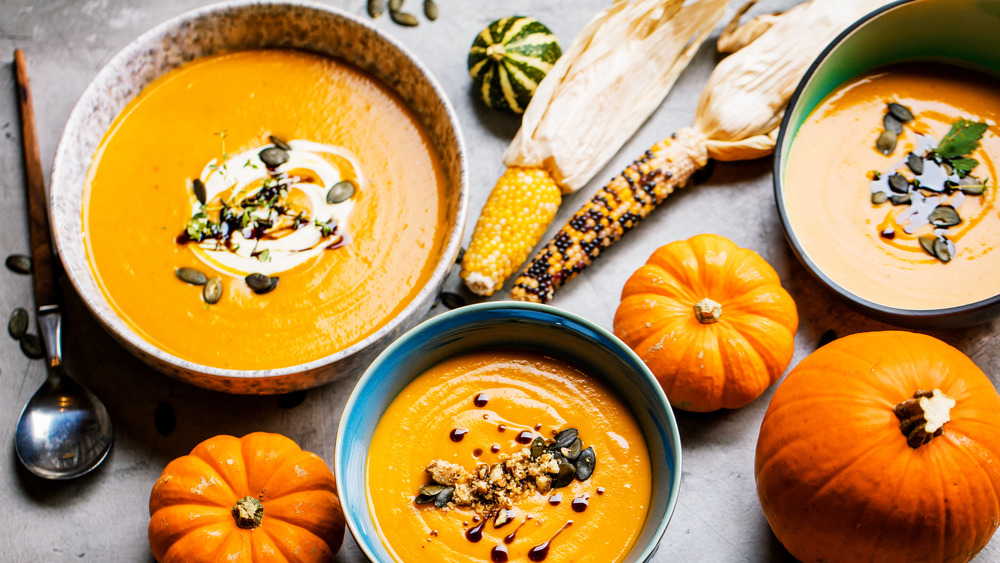Why You Should Start Eating More Pumpkin
From pumpkin pie to pumpkin spice lattes, pumpkin is a key ingredient in a variety of seasonal drinks and desserts. But did you know that pumpkin is also linked to a surprising number of health benefits?
"Pumpkins provide a diverse variety of nutritional benefits in addition to being an ingredient in pies or Halloween décor," Lisa Jones, a registered dietician in Philadelphia, told U.S. News & World Report.
A winter squash belonging to the Cucurbitaceae family, pumpkin is packed full of beneficial nutrients (via Healthline). In fact, it's considered a superfood. Pumpkin is rich in vitamins and minerals that help boost the immune system. Pumpkin is also high in fiber and antioxidants and low in calories, making it the perfect food to incorporate into your diet all year long. From soups to casseroles, there are a number of ways to consume tasty pumpkin-based dishes and reap the health benefits of the savory squash.
The health benefits of pumpkin
First and foremost, pumpkin can help with eyesight. The beta-carotene responsible for the orange color of pumpkins is converted into vitamin A when it reaches the body, which can help maintain and improve eye health, according to WebMD. Pumpkin can also promote weight loss. Since pumpkin is low in calories and rich in fiber, it can help slow down digestion and keep you feeling full for a longer period of time.
Another benefit of eating pumpkin is that it can help boost your immune system. In addition to improving eye health, vitamin A can help fight off infections. The high concentration of vitamin C in pumpkin can also help the immune system recover from colds. Furthermore, research shows that pumpkin may also be able to lower the risk of cancer. Pumpkin is rich in antioxidants, which can help protect your cells against cancer-causing free radicals.
Overall, eating pumpkin is a great way to incorporate more nutrients into your everyday diet, strengthening your body and your immune system.


